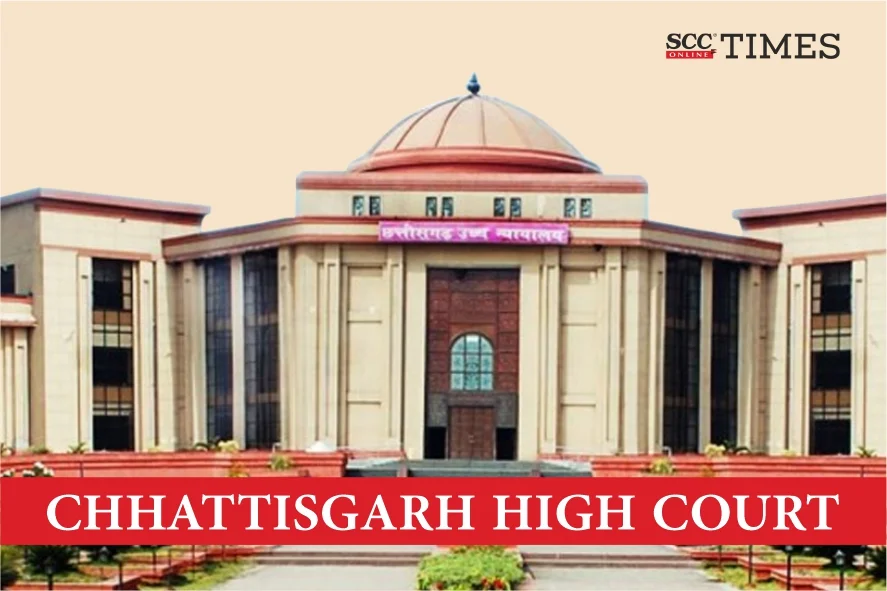Chhattisgarh High Court: In an application filed by the applicants under Section 482 of the BNSS apprehending their arrest for offence punishable under Sections 4511, 3942/343 of the Penal Code, 1860 (‘IPC’), Goutam Bhaduri, J., observed that under Section 4384 of Criminal Procedure Code, 1973 (‘CrPC’), there were several guiding factors which were needed to be considered while granting the anticipatory bail. However, the new provision i.e. Section 482 of BNS deleted the guiding factors which the Courts hearing anticipatory bail applications might have taken into account, such as nature and gravity of accusation, criminal antecedents, and the possibility of the accused to flee from justice. This deletion widened the discretionary powers of the court hearing such applications.
Thus, the Court allowed the application for anticipatory bail and directed that in the event of arrest of the applicants in connection with the offence under Sections 451, 394/34 of the IPC, they should be released on bail by the officer arresting them on executing a personal bond of Rs.25,000 with one local surety in the like sum to the satisfaction of the Investigating Officer concerned.
Background
On 04-07-2016, Applicant 1 went to her husband’s house along with her uncle, wherein some heated talk took place with the husband’s brother (‘the complainant’). At that time, the husband’s brother came out with certain belongings of Applicant 1 and she accidently picked up a mobile which belonged to the husband’s brother. Thereafter, Applicant 1 immediately sent an e-mail stating that she accidently picked up a mobile phone which had similar appearance and wanted to return it back. However, the said issue had unnecessarily been made the source of dispute.
It was also stated that after the report was made, and a closure report was filed by the police on 14-12-2017. However, that closure report also passed through the litigation and eventually the said closure report was set aside.
Analysis, Law, and Decision
The Court stated that the present bail application was preferred under Section 482 of BNSS, and it was relevant to note the difference between Section 482 of BNSS and pari materia provision of Section 438 of the CrPC. The Court observed that under Section 438 of CrPC, there were several guiding factors which were needed to be considered while granting the anticipatory bail. However, the new provision i.e. Section 482 of BNSS deleted the guiding factors which the Courts hearing anticipatory bail applications might have taken into account, such as nature and gravity of accusation, criminal antecedents, and the possibility of the accused to flee from justice. This deletion widened the discretionary powers of the court hearing such applications.
The Court stated that the BNSS incorporated the conditions, which could be imposed while granting anticipatory bail, such as including a condition that the person should make himself available for interrogation by a police officer as and when required. Further, a condition that the person should not, directly or indirectly, make any inducement, threat or promise to any person acquainted with the facts of the case to dissuade him from disclosing such facts to the Court or to any police officer. Moreover, a condition that the person should not leave India without the previous permission of the Court and such other condition as might be imposed under Section 480(3) of BNSS, as if the bail were granted under that section.
The Court referred to the 177th Report of Law Commission of India, and stated that to bring the lens back, on effective review and consideration, the liberty with reasonable bounds for larger good was needed to be prevailed. The idea to reform must be sailed in motion and the idea to keep the sword over applicant of arrest might not be required.
Thus, the Court allowed the application for anticipatory bail and directed that in the event of arrest of the applicants in connection with the offence under Sections 451, 394/34 of the IPC, they should be released on bail by the officer arresting them on executing a personal bond of Rs.25,000 with one local surety in the like sum to the satisfaction of the Investigating Officer concerned.
The Court stated that the applicants should make themselves available for interrogation before the investigating officer as and when required. Further, the applicants should not directly or indirectly, make any inducement, threat or promise to any person acquainted with the facts of the case to dissuade him/her from disclosing such facts to the Court or to any police officer. The Court further stated that the applicants should not act, in any manner, which would be prejudicial to fair and expeditious trial and the applicants should appear before the Trial Court on each date given to them by the said Court till disposal of the trial.
[Parisha Trivedi v. State of Chhattisgarh, 2024 SCC OnLine Chh 9354, decided on 23-09-2024]
Advocates who appeared in this case:
For the Applicants: Aditya Bhardwaj, Advocate;
For the Respondent: Ankur Kashyap, Deputy G.A.
For the Complainant: Ashutosh Trivedi, Advocate.
1. Corresponding Section 332(c) of Nyaya Sanhita, 2023 (‘BNS’)
2. Corresponding Section 309(6) of BNS
3. Corresponding Section 3(5) of BNS
4. Corresponding Section 482 of Nagarik Suraksha Sahita, 2023








